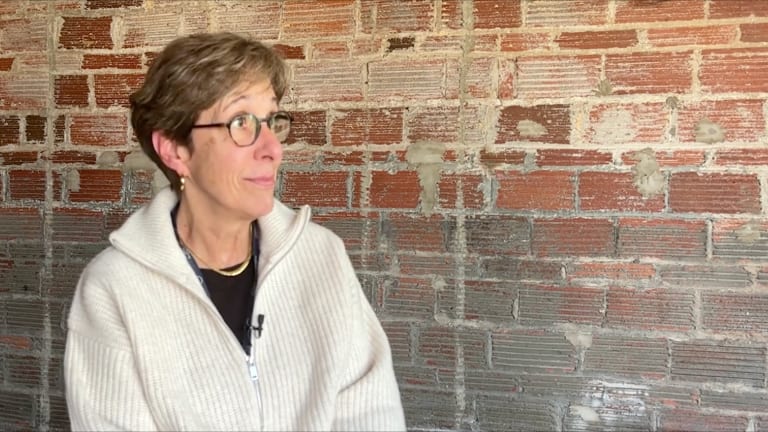Why one of the world's biggest INGOs hopes to get smaller
Tessie San Martin, CEO of FHI 360, believes that INGOs will have to grow smaller over time. She talks about why.
Tessie San Martin believes that it’s the fate of her INGO to see its revenue fall — and that this is a good thing. San Martin is the CEO of FHI 360, one of the largest suppliers of services to the U.S. Agency for International Development. “The amount being allocated to foreign assistance is either declining or, in the best of circumstances, it’s flat,” she told Devex during an interview in the Pro Lounge at the Devex World conference in Washington, D.C. “And then if you take the fact that an increasing proportion of that money is going to be going direct to local organizations, you have to ask where does that leave the INGO?” That’s not to say San Martin expects to see her bank balance shrinking next year. Last year, the 50 largest INGOs in the U.S. saw their revenue increase faster than inflation, and she is far from sure that trend will reverse overnight. But over the next two decades, she said, there will be less and less need for INGOs to carry out large service delivery contracts, which are the biggest source of revenue. Instead, the role of the INGO would be one of support. “That’s okay,” she said. “We’re just changing jobs. The jobs for us in the future aren’t necessarily big revenue jobs. But they’re still important jobs.” INGOs should be happy to make this transition, she said — if you had spent 60 years supporting local partners without building capacity on the ground, something was wrong. She resisted saying that most would be happy to make this transition, in part because it represents uncertainty and change. But there is clearly a level of goodwill; San Martin is far from the first INGO leader to preach the importance of giving away power. However, she also stressed that INGOs won’t — and can’t — make the transition by themselves. Instead, she said, INGOs want funders to push them to change. “They’re the ones with the money,” she said. “It’s been very useful to have the U.S. government at the forefront.” The trouble with that, she said, is that USAID is finding it hard to provide the level of direction that its leaders want. “One of the things I’ve learned in a big organization is that just because I say ‘make it so,’ it doesn’t mean it’s going to happen,” she said. “Imagine all the shifts that need to happen in the systems, in people, in the training that people get, in the processes and procedures. It’s a big change effort within USAID.” San Martin said that USAID has been trying to change direction for a long time, and acknowledged that despite all the goodwill, there have so far been limited signs of a shift in direction. But she said she was seeing more evidence that the oil tanker was beginning to turn around. “Maybe it’s just me and I’m being naive. Or maybe I’ve been paying more attention to it now,” she said. “But they’ve been more intentional.” Fundamentally, she said, she believes USAID will be successful. “Why wouldn’t we get this done?” she said. “It’s the right thing to do.”
Tessie San Martin believes that it’s the fate of her INGO to see its revenue fall — and that this is a good thing.
San Martin is the CEO of FHI 360, one of the largest suppliers of services to the U.S. Agency for International Development.
“The amount being allocated to foreign assistance is either declining or, in the best of circumstances, it’s flat,” she told Devex during an interview in the Pro Lounge at the Devex World conference in Washington, D.C.
This story is forDevex Promembers
Unlock this story now with a 15-day free trial of Devex Pro.
With a Devex Pro subscription you'll get access to deeper analysis and exclusive insights from our reporters and analysts.
Start my free trialRequest a group subscription Printing articles to share with others is a breach of our terms and conditions and copyright policy. Please use the sharing options on the left side of the article. Devex Pro members may share up to 10 articles per month using the Pro share tool ( ).
David Ainsworth is business editor at Devex, where he writes about finance and funding issues for development institutions. He was previously a senior writer and editor for magazines specializing in nonprofits in the U.K. and worked as a policy and communications specialist in the nonprofit sector for a number of years. His team specializes in understanding reports and data and what it teaches us about how development functions.








